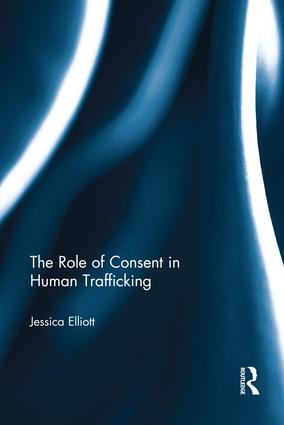Description
Shipping for this item is FREE, please allow 15 days for shipping. As its shipped from our Auckland warehouse there is no unexpected import charges, custom duties or taxes.
Condition: BRAND NEW
ISBN: 9781138215276
Year: 2016
Publisher: Taylor & Francis
Pages: 268
Description:
Human trafficking is consistently featured on the global political agenda. This book examines the trafficking of adult female victims for sexual exploitation, and specifically the understanding of consent and its influence in the identification and treatment of trafficking victims.
Jessica Elliott argues that when applied to situations of human trafficking, migration and sexual exploitation, the notion of consent presents problems which current international laws are unable to address. Establishing the presence of 'coercion' and a lack of consent can be highly problematic, particularly in situations of human trafficking and exploitative prostitution; activities which may be deemed inherently coercive and problematically clandestine.
By examining legal definitions of human trafficking in international instruments and their domestic implementation in different countries, the book explores victimhood in the context of exploitative migration, and argues that no clear line can be drawn between those who have been smuggled, trafficked, or 'consensually trafficked' into a situation of exploitation. The book will be great use and interest to students and researchers of migration law, transnational criminal law, and gender studies.
Condition: BRAND NEW
ISBN: 9781138215276
Year: 2016
Publisher: Taylor & Francis
Pages: 268
Description:
Human trafficking is consistently featured on the global political agenda. This book examines the trafficking of adult female victims for sexual exploitation, and specifically the understanding of consent and its influence in the identification and treatment of trafficking victims.
Jessica Elliott argues that when applied to situations of human trafficking, migration and sexual exploitation, the notion of consent presents problems which current international laws are unable to address. Establishing the presence of 'coercion' and a lack of consent can be highly problematic, particularly in situations of human trafficking and exploitative prostitution; activities which may be deemed inherently coercive and problematically clandestine.
By examining legal definitions of human trafficking in international instruments and their domestic implementation in different countries, the book explores victimhood in the context of exploitative migration, and argues that no clear line can be drawn between those who have been smuggled, trafficked, or 'consensually trafficked' into a situation of exploitation. The book will be great use and interest to students and researchers of migration law, transnational criminal law, and gender studies.

